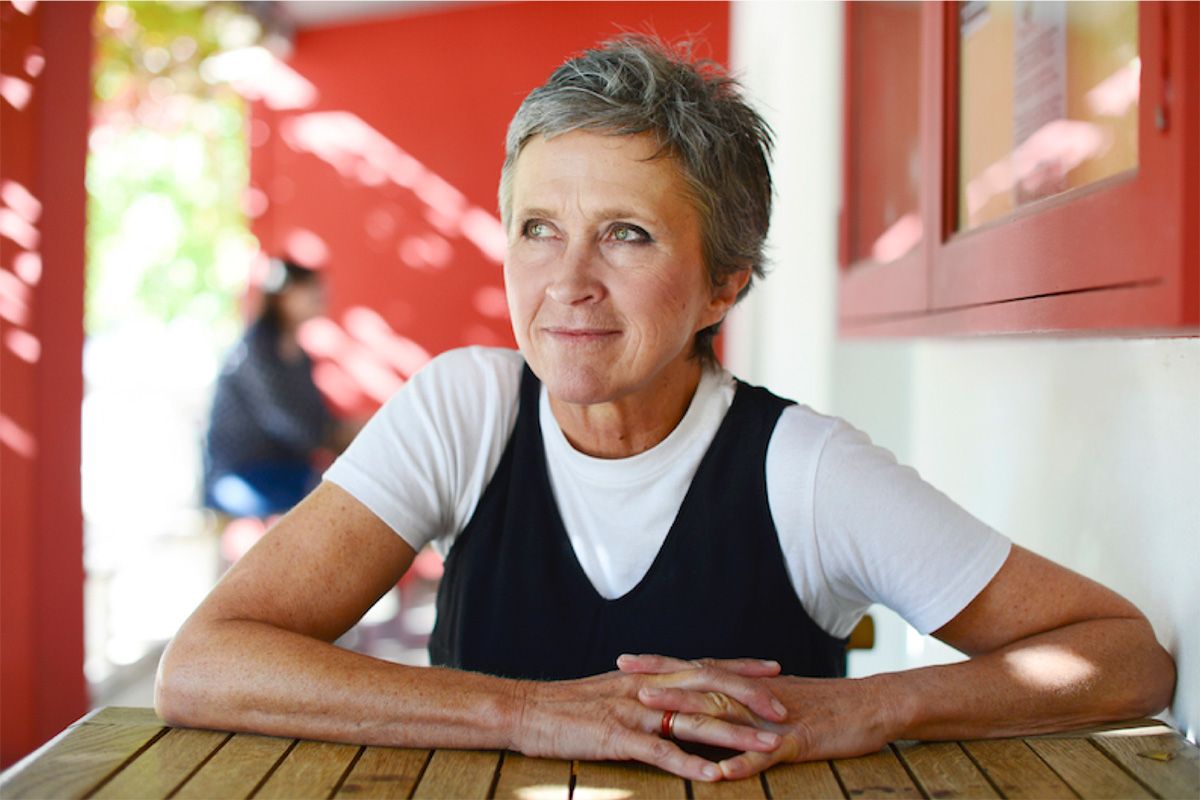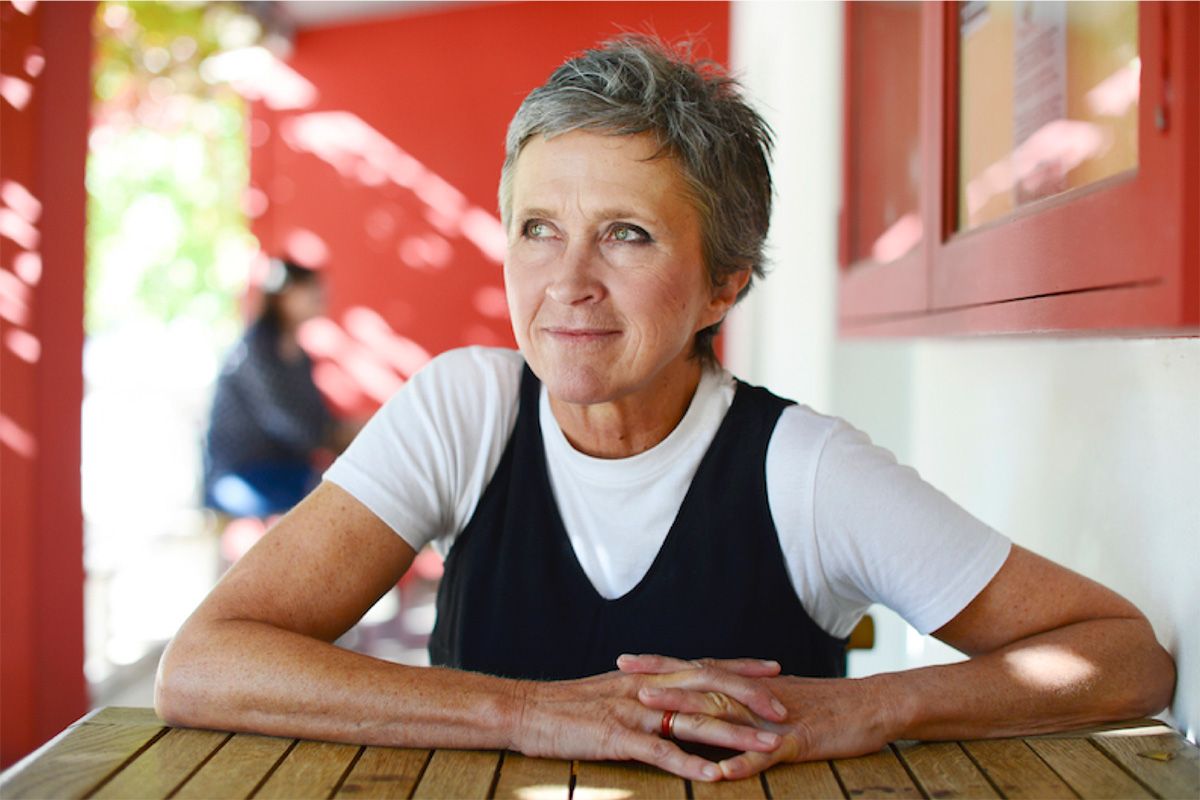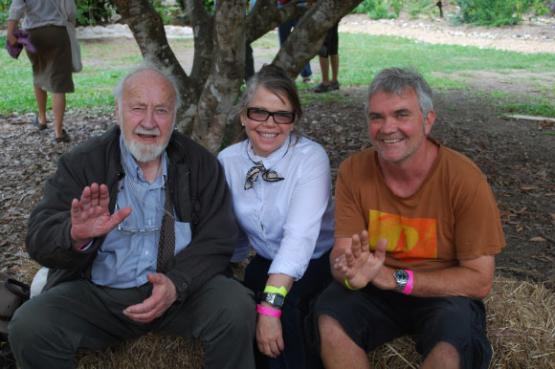
ALIVE! Meet Rosa Kruger - on a mission to preserve the old vines of South Africa
4 min read
Rosa Kruger works with vineyards across South Africa and runs the Old Vineyard Project, which catalogues plots of old vines in the country - some dating back to 1880. We caught up with her ahead of the festival ...

"My name is Rosa Kruger. I call myself a vineyard manager. I manage existing vineyards and design new vineyards for quality wine in the Western Cape of South Africa.
This morning I was with one of my oldest farmers in an old Syrah vineyard. He looked at me and said ’Didn't you know that a vine has a brain?’ The vines seem to remember what happened the previous year. The challenge is always not to interfere too much."
What have you personally learned from working with old vines?
"It teaches you patience and it teaches you empathy. I love working with old vineyards because you can almost walk hand in hand with them. I have learned not to prune too hard, not to work too hard, not to put my thumbprint on the vineyard. Not to dominate but to stand back and let it show me what it wants. You learn from it and it learns from you."
What qualities do old vines offer to a winemaker?
"The vines very often have a higher acidity than younger vines. In our country, with this kind of heat, this acidity is of utmost importance. I think they produce consistently good wines. They are naturally low yield. Old vines are self regulating, they don't need so much human interference. They can resist the climatic changes from heat waves and wind and drought much easier than younger vines.
Most are dry land farmed. If we can find out why they survived then we can maybe have a chance to fight climate change, which we all know is a big and a real danger for the future. Maybe it's the rootstock / clone combination. Maybe it's the variety / rootstock combination. We don't know what it is.
This whole phenomenon of old vines in South Africa is a very strange thing. Once you find an old vineyard, which the farmer then starts cultivating with more care, and then you vinify it separately - not with all the younger vines - the farmer often rediscovers his love for viticulture and growing plants. Suddenly, you see a spark in his eyes.
We have never stopped learning. For example, we've discovered that some of our oldest Chenin vines in South Africa are completely virus free. Leaf roll virus is a huge problem in South Africa. It inhibits quality and also quantity. So we are constantly trying to fight the leaf roll virus. But we have old vineyards, surrounded by leaf roll vineyards, that have remained virus free for 60 years. How is that possible? None of us know why. If we can find out why, maybe we can win the fight against viruses in vineyards. Old vines need to be studied to to give us answers for us for the future."
Is there a danger in being overly sentimental?
"I don't like to be labeled as overly romantic about old vines because that's not realistic. Old vines must still produce a crop to keep the farmer on the land and the workers in a job. For me, that's the most important thing. The challenge always is to make it sustainable: to increase the crop and increase the price. And, of course, to teach people how to prune and tend to them properly. We do pruning in a very specific way. The Old Vineyard Project goes around and teaches vineyard workers how to prune, we've been quite successful with that. It's very light pruning, always with the aim of promoting new wood."
How do you manage your vineyards?
"On all the farms that I work with, we use natural compost and natural fertiliser - aged chicken and cow manure. And then foliar feeds - the main foliar feed we use is a kelp spray. It's a totally organic, natural way of feeding our vines.
Another aspect that we promote is mulching - to have some kind of green cover crops. We believe that brown or bare soil is dead soil. So annual cover crops between the rows and mulching under the vine. And, of course, I really promote the idea of soil health. So we've tried to work as little as possible with herbicides, we definitely don't use insecticides.
We've developed new vineyard sites in the country that are planted in a way that was done 90 years ago, 100 years ago. We plant blocks of rows at higher density rather than single rows so you don't have to use tractors between the rows. We don't like compaction of soils because our soils are so ancient and fragile.
The vineyards are planted on the slopes and contours so they can harvest the natural rainfall. All those contours lead to a dam so there's very little water wasted. That's a new way in which we are developing vineyards in South Africa that are much more natural and in respect with the landscape. You get much more soil health, much looser soil, better root penetration, and much, much less erosion. So that is exciting. It looks absolutely beautiful, too."
To find out more, join Rosa for her talk at Alive! on Monday, 6 December. Buy your tickets now!


